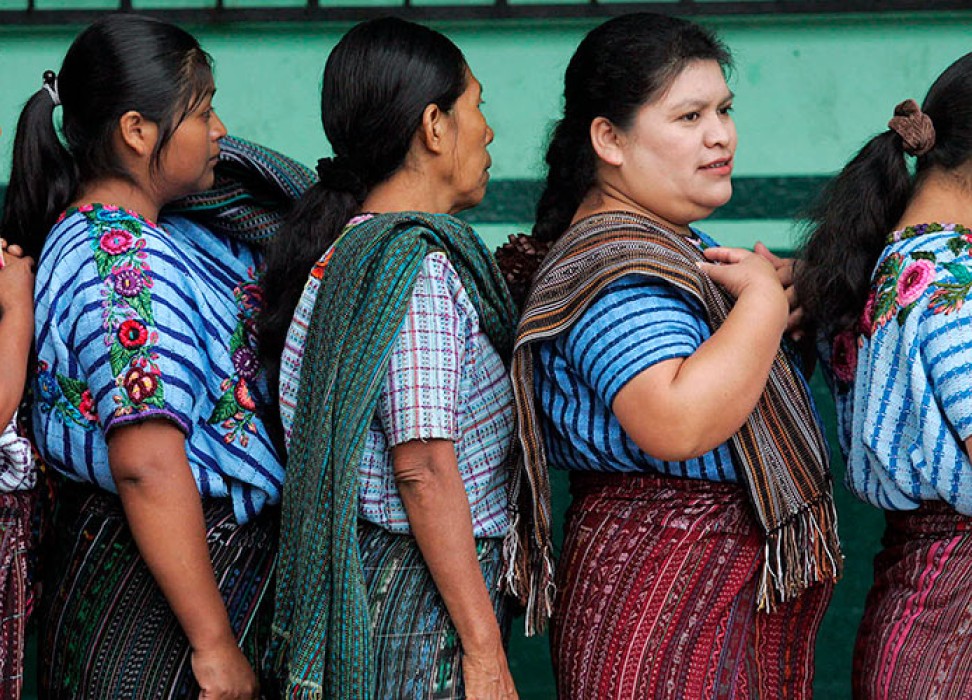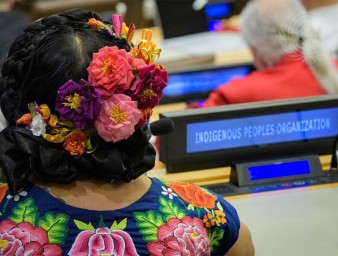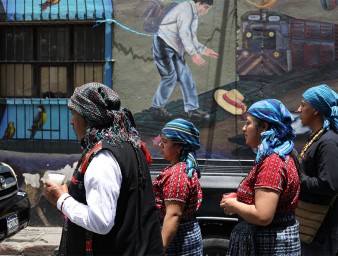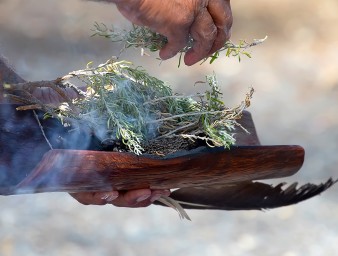Indigenous women balance identity, gender and politics when in power
09 August 2019

“To be fearless, is to know what you want, not to be defined by others,” said Ethel Blondin-Andrew.
Blondin-Andrew is a member of the Dene Nation of Canada and was the first indigenous woman elected to the parliament of Canada. She spent 17 years in politics, including 12 years as part of the Cabinet. She has been a leader in her community and for other indigenous people across Canada. She said her indigenous culture rather than keeping her down (though many tried) was the thing that helped her to be a fearless success in politics.
“I went into politics because I felt I could effect change, because I felt I could be unrelenting in my power and strength, once it was released by the people that tried to keep me down,” Blondin-Andrew said. Her grandmother, a great matriarch, motivated her.
“She instilled in me from the time I was a baby, that there was more to my life than what people thought it should be. And that followed me throughout the course of my careers as well as my political journey.”
Blondin-Andrew’s was one of seven indigenous women who told their stories of taking part in high level politics for their respective countries, as part of a panel discussion of the Expert Mechanism on the Rights of Indigenous Peoples (EMRIP) at the United Nations. The discussion, called “Indigenous Women in Power” was a chance to showcase the success and commitment of indigenous women in positions of political power as well as inspire others.
Moderator Carolyn Rodrigues Birkett, an Amerindian from Guyana who served in the country’s parliament from 2001 to 2015 and who now works for the FAO, called her experience as an indigenous woman in politics a balancing act.
“As an indigenous person…. Your work cuts across every sector,” she said. “Trust has to be built both ways with the peoples whose lives you're hoping to change and those in the cabinet and the parliament who ultimately will have to approve the laws, policies, programs and budget. Trust and being able to convince both of win-win situations are essential.”
Journey to politics
“Going into politics was never my intended course,” said Janine Lasimbang of Malaysia.
Lasimbang, a member of the Kadazan group, is a first time state elected representative. She has advocated for indigenous rights for 32 years, spending 17 of them as a trainer and organizer. It was this experience that showed her that for change to happen in the community laws needed to change.
“I knew if we don’t change policies, we don’t change laws and we will always be putting out fires from where I am working together with the communities,” she said.
Sara Olsvig, an Inuit from Greenland said her journey went from being about politics in terms of State power relations, to revolving around social affairs – concerns about the living conditions, social conditions and other issues particularly of indigenous children.
Olsvig was a Member of Parliament for both Denmark (representing Greenland) and Greenland, where she found that she could affect some change as a politician on the national and local levels. Yet, for the problems facing the indigenous community, particularly children, she said this level of involvement was too far removed. She now heads UNICEF Denmark in Greenland.
“For me it is very important that we always remember who we are fighting for, for autonomy in the future, for more self-determination and self-government. It is the children.” Olsvig said.
Childbirth did not stop her in her tracks. Her leadership became stronger on being pregnant as a Minister. “The fact that I had a baby in my womb made my mind much clearer, she said”
Sometimes, the journey to politics is straightforward. Anna Otke is a member of the Chukchi people in the north of the Russian Federation and currently serves on the Federation Council of Russia, representing her region. A former UN Human Rights Office Indigenous Fellow, she said her work on indigenous issues was a natural fit for politics.
“The aim of politics is for real people, as all Indigenous peoples call themselves in Russia … to be able to live a life worthy of their ancestors in such a fast moving world,” she said.
Identity strengthens politics
For Zakiyatou Oualett Halatine of Mali, her time as a Minister in the Malian government was the latest rung in the ladder to achieve her dreams. Getting there, she has stood on the shoulders of others and relied on the systems in place to help a self-described poor nomadic girl receive a prestigious scholarship at 15, become an engineer and then a politician fighting for the rights of indigenous people.
The support of her family gave her strength. From her mother she learnt that when you want to do something you have to start it well and end it well and from her father she learnt to rise above the prejudice.
“If somebody says to you that you are nothing but a poor woman, say yes. I have two hands, two feet, and a head. And how many do men have?” she said.
Joenia Wapichana has lived a life of firsts. A member of the Wapichana people of Brazil, she was the first indigenous woman to become a lawyer and the first elected as a representative in the Brazilian government. A recipient of the United Nations Human Rights Prize in 2018, Wapichana used her visibility to advocate for indigenous rights and women’s rights in Brazil and on the world stage. She says her “duality” – being female and indigenous – has given her both a unique perspective and strength.
“I am here because I know who I am. I am here because I know my people. I know where I want to go and we are all part of this planet. We have to protect indigenous lands and indigenous rights.”
Each year on 9 August, the more than 370 million indigenous peoples living across 90 countries are celebrated through the marking of the International Day of the World’s Indigenous peoples.
9 August 2019



